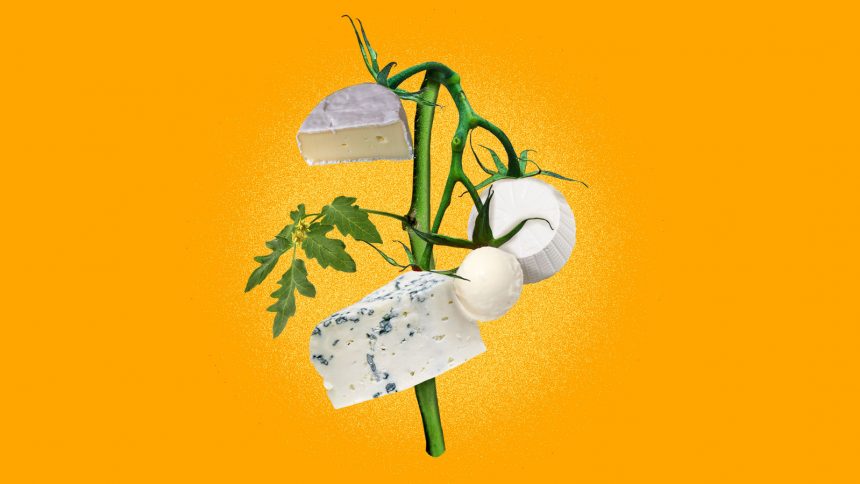In a YouTube video uploaded last year, home cook and food influencer Alexa Santos showcases her love for cheese by scoring a wheel of brie, drizzling it with honey, and searing it in a hot cast-iron pan. She expresses her admiration for cheese, admitting that it’s the reason she can’t go vegan. This sentiment resonates with many, as seen in lengthy Reddit threads where aspiring vegans confess their struggle to give up beloved cheeses like cheddar and chèvre.
Miyoko Schinner, the founder of Miyoko’s Creamery, also acknowledges the allure of cheese in a recent Netflix documentary. She notes how people find it difficult to give up cheese, highlighting the unique hold the dairy product has on individuals like herself. Cheese has a significant impact on the environment, ranking behind only red meat and farmed shrimp in terms of its climate footprint. The methane emissions from dairy cows and the concentrated production process contribute to its environmental toll.
Despite the challenges, two alternative cheese companies are introducing plant-based options that are winning over even devoted dairy enthusiasts. New Culture, a San Francisco-based startup, uses precision fermentation to create a mozzarella without cows. Climax Foods employs machine learning to identify plant ingredients that mimic the flavors and textures of traditional cheeses like blue cheese, feta, brie, and chèvre. These innovative approaches are gaining attention in the culinary world.
While the journey to mainstream acceptance of alternative proteins is ongoing, significant progress has been made in recent years. Companies like Impossible Foods and Beyond Meat have paved the way for plant-based options that closely resemble traditional meats. The rise of alt-meat and alt-dairy products signals a growing shift towards sustainability and ethical consumption practices in the food industry.
The market for vegan cheese, though smaller than that of dairy cheese, has seen advancements in taste and quality. New technologies like precision fermentation are enabling companies to create plant-based cheeses that closely mirror their dairy counterparts. By focusing on taste and functionality, these companies are bridging the gap between traditional and alternative food options, offering a promising solution for environmentally-conscious consumers.






